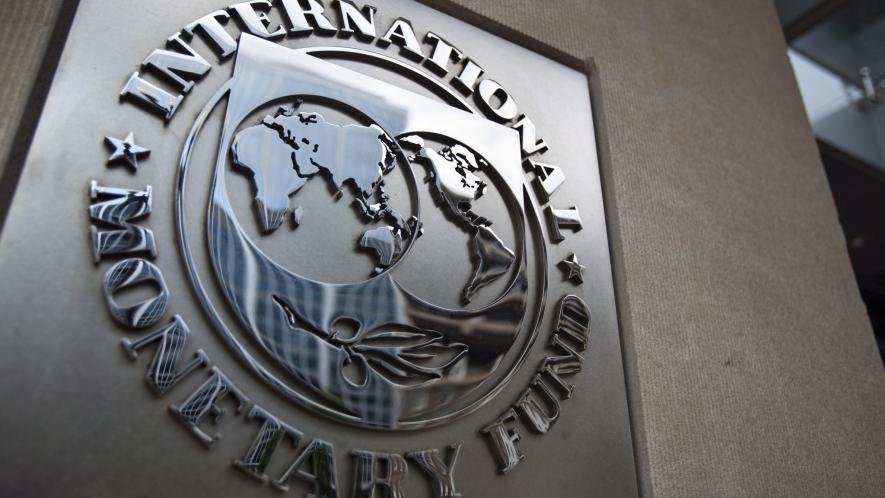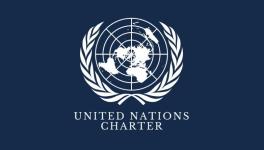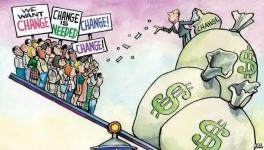Economists, Academics, Development Experts Write Open Letter to IMF on Concern Over Social Protection

Open Letter to the IMF on austerity and social protection
To Christine Lagarde, IMF Managing Director
To Executive Directors of the IMF
As a group of economists, academics and development experts, we are writing to express concern over the IMF “independent” evaluation of The IMF and social protection, and its recommendations approved by IMF Board on July 2017.
We are particularly concerned by IMF advice on social security reforms, led by a fiscal objective, combined with labor reforms that weaken wages and collective bargaining, these reforms have a high human cost and will result in more poverty and inequality.
These reforms and austerity adjustments also depress household income, contract domestic demand and are slowing down global recovery.
Austerity cuts to multiple social protection programs are reducing social protection coverage and benefits. Old-age poverty is increasing in many countries as a result of inadequate pension reforms.
Further, we are very concerned about recent proposals to cut employers contributions to social security (see IMF Policy Paper on Fiscal Policy 2015 and WEO April 2016 chapter 3 on labor taxes/tax wedge) as this would destroy public social security systems and increase inequality.
These reforms have negative social impacts and represent high political costs to governments.
Precisely, world governments agreed in the SDGs to extend social protection systems for all, including social protection floors (SDG 1.3), instead of narrow-targeting safety nets for cost-savings. The IMF endorsement of the SDGs requires supporting global commitments.
Universal social protection, normally achieved by a combination of public social insurance and social assistance, is supported by all main development organizations due to its positive developmental impacts. Child and maternity benefits increase productivity and help to incorporate women into the labor market; disability and old-age pensions support household income; unemployment support assists those without jobs and has a counter-cyclical function during economic downturns. Adequate social protection benefit levels reduce poverty and inequality, promote human development, social cohesion and political stability.
The IMF does not have expertise on social protection. Advice to countries on social security reforms should be left to the ILO, the UN agency with the mandate for social protection and labor. Other UN organizations can support to extend of coverage, in the context of SDG 1.3. Additionally, representative trade unions must be consulted and strengthened, not weakened, to ensure collective bargaining processes that ultimately will bring prosperity to countries and reduce inequality.
Sincerely,
Sir Richard Jolly, Institute of Development Studies, former Deputy Executive Director UNICEF (1982-1996)
Professor Stephany Griffith-Jones, Financial Markets Director, Initiative for Policy Dialogue, Columbia University
Richard D. Wolff, Professor of Economics Emeritus, University of Massachusetts, Amherst and Visiting Professor, New School University, New York City, USA.
John Weeks, Emeritus Professor of Economics at School of Oriental and African Studies, University of London, UK.
Rolph van der Hoeven, Professor Emeritus Employment and Development Economics, International Institute of Social Studies (ISS), Erasmus University (EUR), The Hague, Netherlands.
Al Campbell, Emeritus Professor of Economics, University of Utah, USA.
Gabriele Koehler, UN Association Germany and Member of UNICEF National Committee, Germany.
Sakiko Fukuda-Parr, Professor of International Affairs,The New School, USA.
Professor Diane Elson, University of Essex and Institute of Development Studies, University of Sussex. Member of UN Committee for Development Policy.
Professor Radhika Balakrishnan, Rutgers University, USA.
Anis Chowdhury, Adjunct Professor, Western Sydney University and the University of New South Wales, Australia.
Jayati Ghosh, Professor, Jawaharlal Nehru University, New Delhi, India.
Get the latest reports & analysis with people's perspective on Protests, movements & deep analytical videos, discussions of the current affairs in your Telegram app. Subscribe to NewsClick's Telegram channel & get Real-Time updates on stories, as they get published on our website.
























